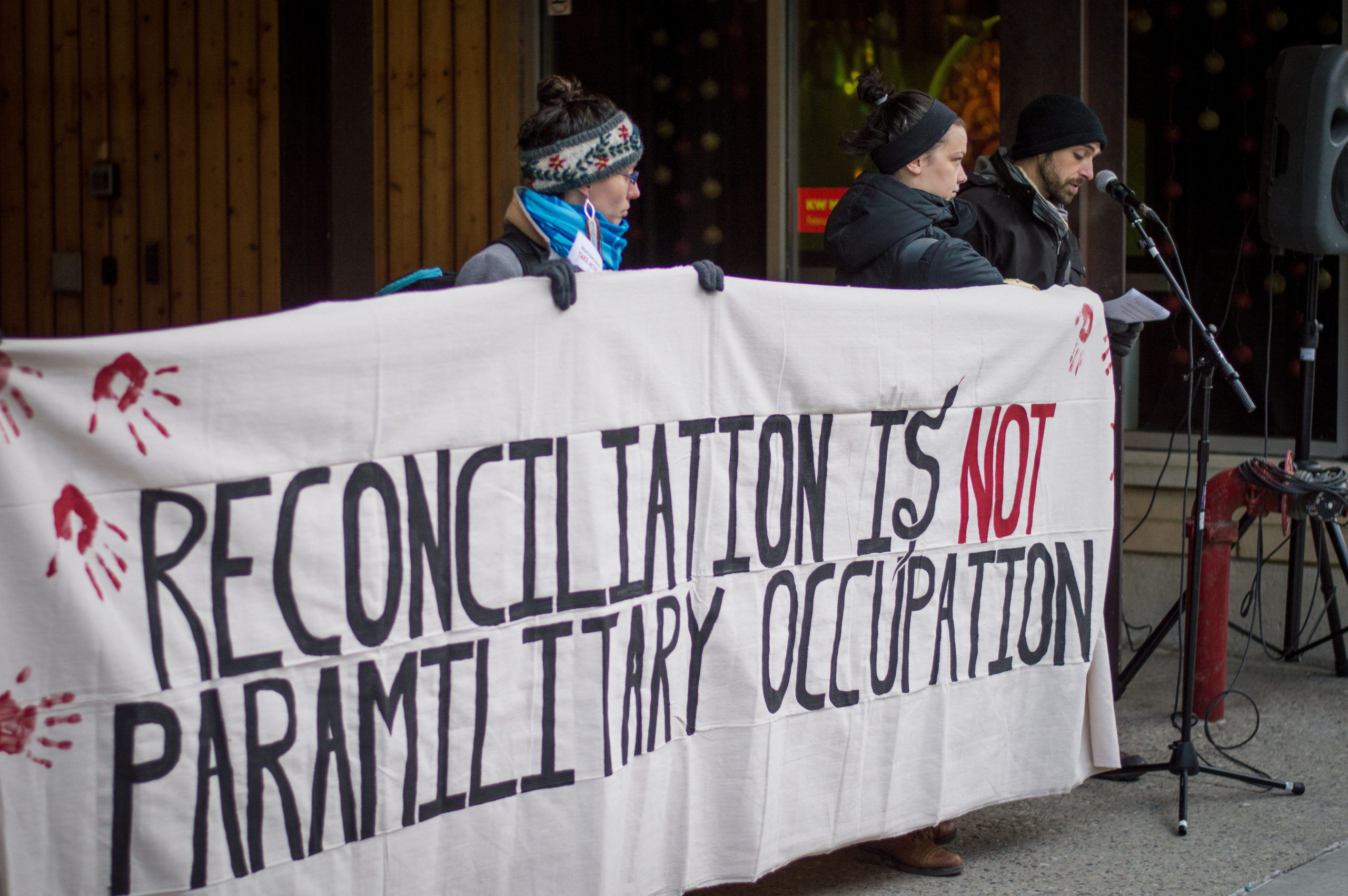
With the world ticking towards a climate-changed future, climate and indigenous rights activists came together to organize the ALARM climate strike at THEMUSEUM in Downtown Kitchener.
Hosted on Jan. 17, 2020, the strike followed an appeal made by Wet’suwet’en hereditary chiefs in B.C. to the United Nations to monitor the RCMP, government, and Coastal GasLink’s (CGL) actions on their traditional lands.
“It’s outrageous, and we should be horrified and angered by this. It’s a huge betrayal. It violates the Canadian constitution. It violates international law.
It violates Wet’suwet’en law,” said Kai Reimer-Watts, co-founder of Better Creative and Ph.D. student in Community Psychology at Wilfrid Laurier University, at the strike.
As the Mounties increase their presence on traditional Wet’suwet’en lands, set up checkpoints that limit access to a service road leading into the region, and restrict media access on the events transpiring, concerns and speculations regarding the RCMP’s actions on the traditional lands are being raised.
“The last time the RCMP set up an exclusion zone, the RCMP was given leave to use violence against unarmed people.
This is horrific a betrayal,” the Facebook page, Fridays for Future – Kitchener/Waterloo, read regarding the ALARM strike.
The strike began with speakers Reimer-Watts and Lori Cambell, Director, Shatitsirótha’ Waterloo Indigenous Student Centre, and a person who looks after the Indigenous Studies academic programming at St. Paul’s University College.

“I think it’s really important that people are aware of these types of things that are going on and how they influence other Canadians,” Cambell said.
Cambell also criticized the representation of indegenous communities in media and everyday rhetoric.
“Somehow, all of a sudden, the narratives get spun when it is indigenous people protecting their land and their indigenous rights than when other people, other Canadians protect their territories and their rights,” Cambell said.
The strike emphasized climate justice as an instrument of fighting climate change and therefore, Wet’suwet’en concerns were backed by climate activists and various members of the KW community during this strike.
“We need to stand in solidarity with our indigenous brothers and sisters around the world for justice and a just transition to a safe climate future for all, humbly learning from thousands of years of history and knowledge that have taken place here,” Reimer-Watts said.
The strike also celebrated the unveiling of THEMUSEUM’s new exhibit tilted “ALARM – Responding to our climate emergency” — the name of which inspired the name of the climate strike.
At 12:15 p.m., THEMUSEUM unfolded their new exhibit banner.
“THEMUSEUM looks to use its stage to shine a light on the efforts being done to help conserve a natural climate and make transformative connections to what individuals, corporations and governments must do to chart a new course of optimism for the future,” as stated by the THEMUSEUM’s website description regarding the exhibition.





























